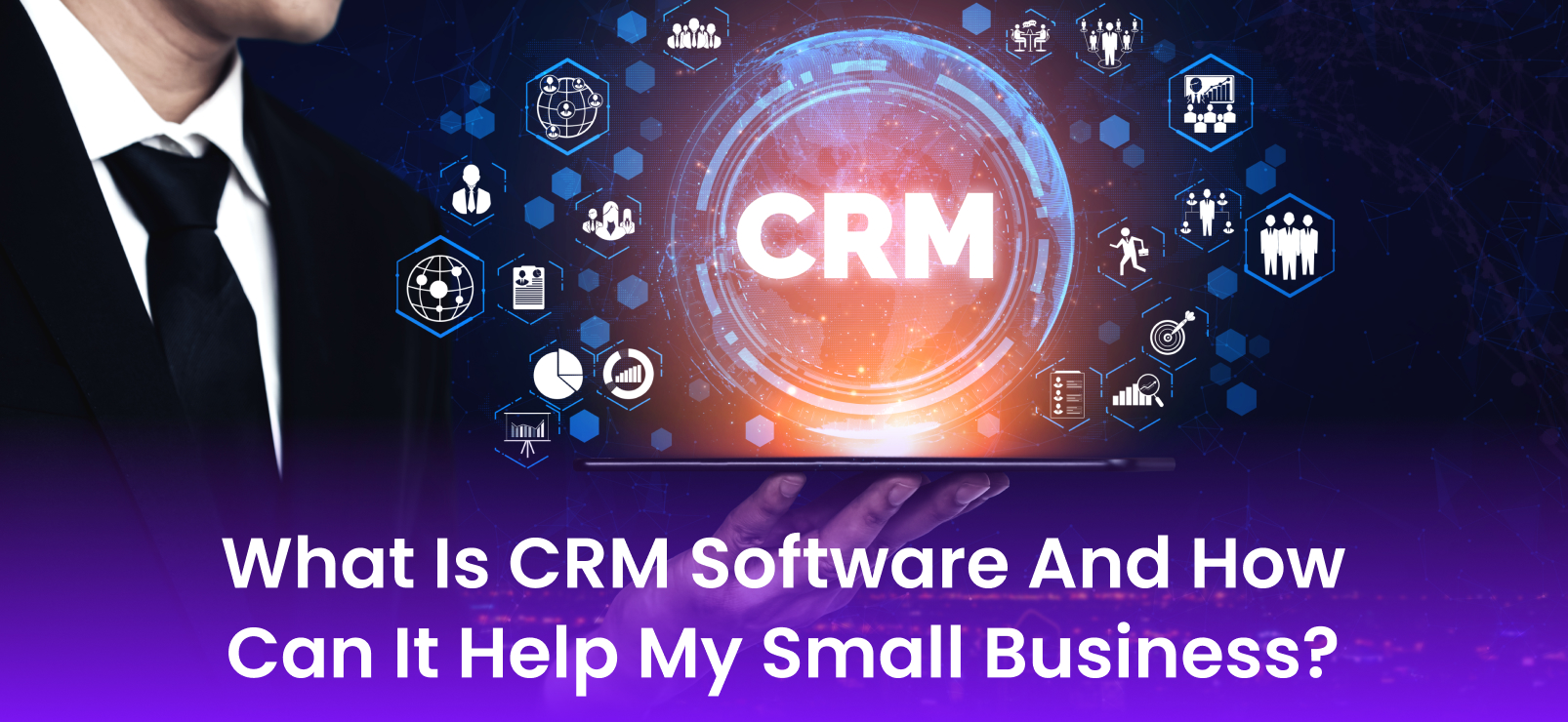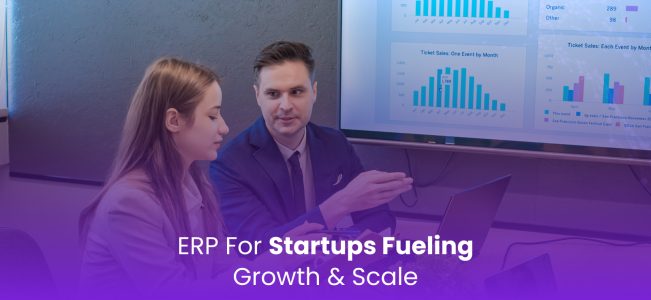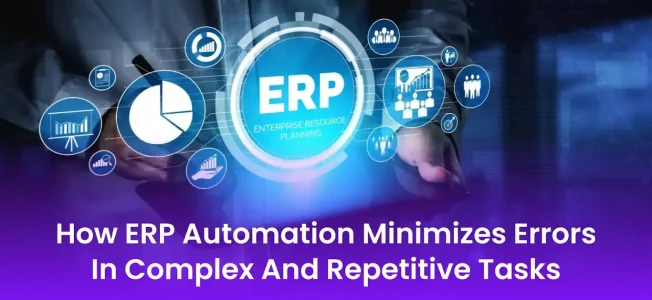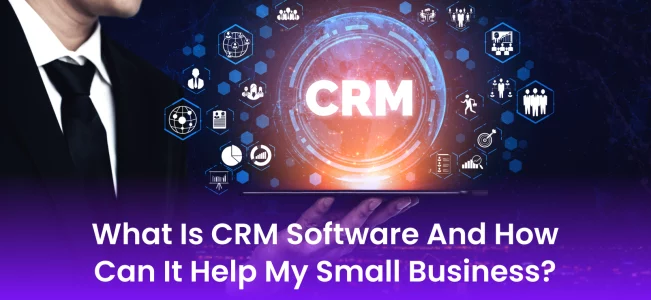What Is CRM Software, And How Can It Help My Small Business?
CRM (customer relationship management) software tracks leads, customer information, and sales procedures to help organisations stay organised. It’s a crucial instrument for business owners who want to grow effectively. Choosing the best CRM solution might be difficult because there are so many to choose from. To assist you in making a decision, continue reading to examine essential characteristics and advantages.
What is CRM Software?
CRM, or Customer Relationship Management Software, is used by businesses to keep track of sales leads, promotions, and customer interactions. The personalised experiences CRM provides help businesses better understand their customers’ demands and improve customer service by organising and analyzing customer data.
Through automating processes like emailing and creating reports, CRM scales business operations and saves time. It evaluates communications (calls, emails, and meetings) and identifies consumer behavior patterns to help businesses make better decisions and boost growth. Industries like retail, healthcare, and B2B widely benefit from its capabilities.
Types of CRM Software
Here are the types of CRM software, each personalised to meet different business needs.
-
Operational CRM
Operational CRMs automate sales, marketing, and service tasks to streamline customer interactions. Key features include:
- Sales automation (e.g., lead scoring, quotes)
- Contact management (customer info and history)
- Service tools (ticketing, chat, support)
They boost efficiency, support growth, and free teams to focus on high-value, human-driven work.
-
Strategic CRM
By helping companies identify important clients and customising engagement strategies, strategic CRMs allow them to focus on long-term customer value. Some essential features are:
- Customer segmentation by behaviour, needs, or demographics
- Customer engagement to boost retention and loyalty
- Customer data management for secure, organised information
These tools support up selling, cross-selling, and sustained business growth.
-
Analytical CRM
Analytical CRMs collect and analyse customer data to deliver actionable insights. They help businesses understand customer behaviour and improve decision-making through:
- Data mining to predict trends and behaviours
- Data warehousing to organise and manage large datasets
These insights help boost sales, retention, and customer satisfaction.
-
Collaborative CRM
To synchronize sales, service, and marketing, collaborative CRMs enhance data sharing and real-time communication between departments. Essential features include:
- Interaction management for consistent, tailored communication
- Channel management across email, phone, and social media
- Document management for easy access to customer files
This integration ensures smooth, informed customer experiences without repetition.
How does CRM Software work for small businesses?
A small business CRM tracks customer interactions, from initial contact to sales and support, to help manage relationships and simplify operations. CRMs gather useful data, whether B2B or B2C, to improve sales and service.
Cloud-based CRMs are popular owing to their centralised data access and scalability. They offer automation tools to improve marketing ROI, increase sales, and improve client satisfaction. Through precise, real-time data, small firms can improve productivity, customise outreach, and gain insights through AI integration.
How to choose the right CRM for your small business
It’s time to figure out a solution that fits your company now. You may choose the best CRM platform for your small business by following these steps:
-
Identify Business Needs
What does your company need? Which of your systems aren’t functioning? What are your long-term objectives? Jot down your expectations for a CRM as well as the key company challenges.
-
Review Existing Tools
List the tools you use for email, marketing, customer service, and more. Assess their performance to ensure the CRM you select integrates smoothly.
-
Set a budget
Compare platforms as per the number of contacts you have and the features that will be most valuable. Consider the value of a CRM platform including the features, customer service, and ease of use.
-
Compare features and resources
Invest in what you need, with options to develop in the future. Select a provider that delivers on boarding and support, allowing you to make the most of your new CRM.
-
Think about the future
As you link platforms, don’t just think about your requirements today. Think about scalability with extra users, AI capabilities, and engagement management, as you evolve.
-
Narrow down your list
Start by creating a long list of several providers, and after you have narrowed it down to the ones that meet your needs. Ask each one of them for demos and choose the most suitable option for you and your team.
Conclusion
Choosing right CRM software is important for small businesses in particular if they want to simplify operations, improve client interactions, and drive growth. You can look for a CRM that genuinely supports your objectives by understanding your wants, evaluating feasible options, and making future plans.












